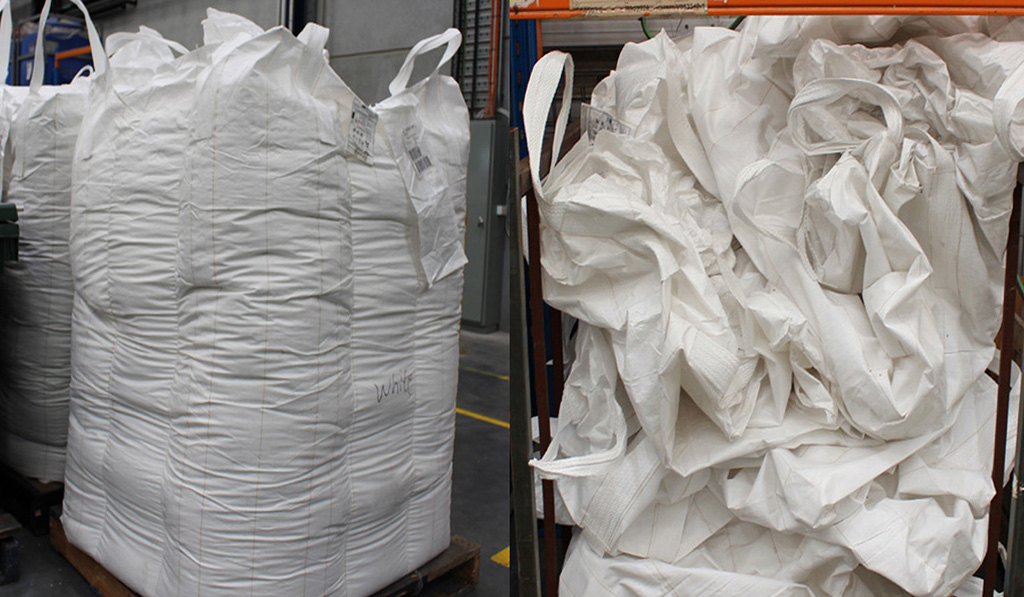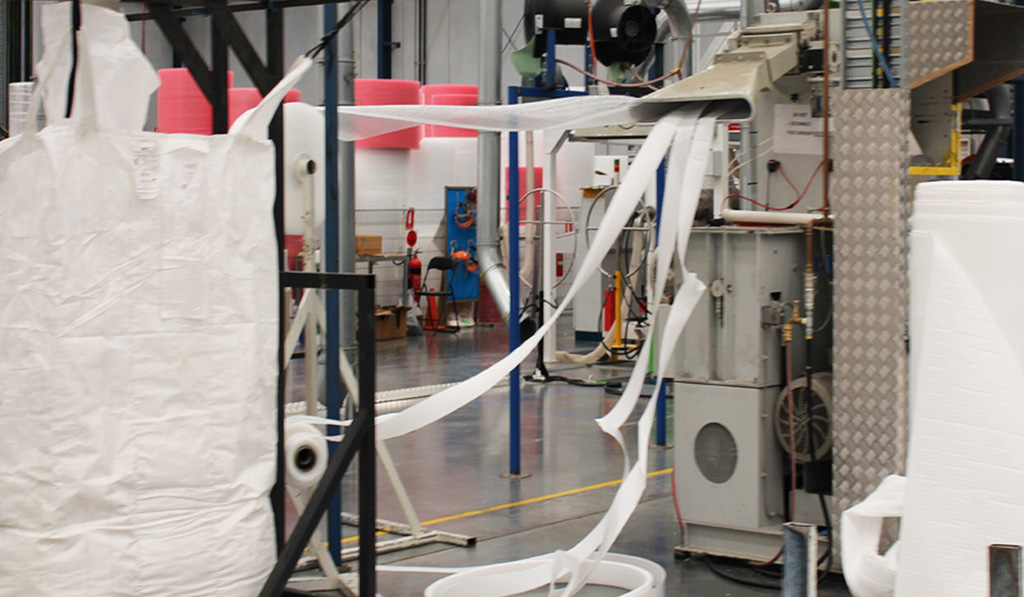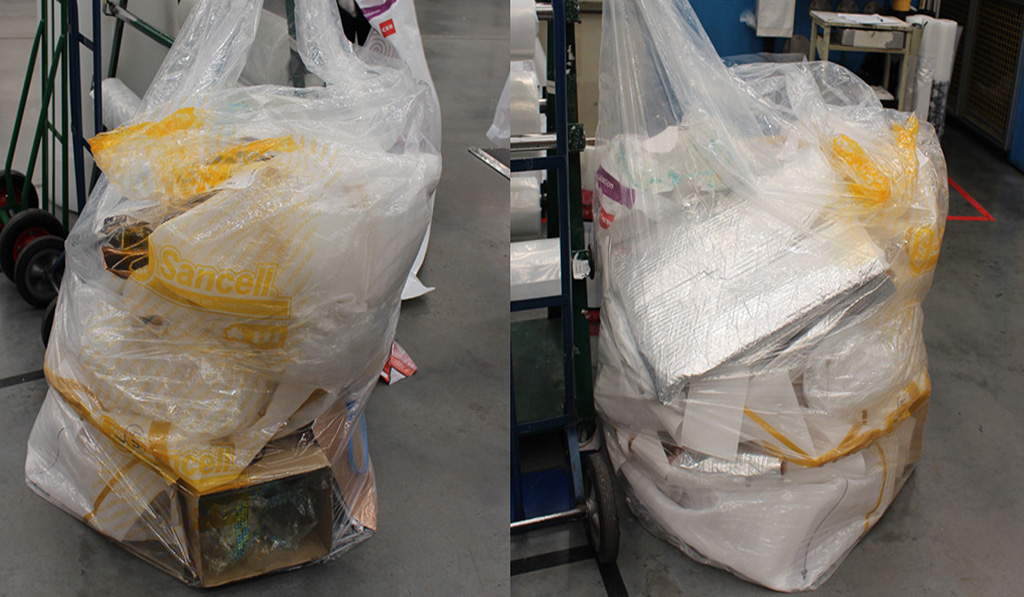A waste audit revealed a range of soft plastics that neither we nor our current recycler could process and was making its way into land fill
Recently, Sancell adopted an internal challenge to reduce our landfill waste to zero, yes ZERO! In a manufacturing facility, zero waste is extremely unrealistic, potentially impossible. However, in striving for no waste we force ourselves to (at the very least) drastically improve on our current performance. Our ISO 14001 Environmental accreditation, attained in 2009, provides guidelines and procedures to facilitate consistent and constant improvement. The Victorian Government’s Take 2 pledge has also been a helpful resource in striving for a zero carbon footprint. In addition to this, we’ve decided to tackle our waste head-on and make a dedicated, ongoing project of reducing our waste to zero. It is our goal to be an environmental benchmark in Australian plastics manufacturing. We aim to be leaders, innovators and an example to other manufacturing companies in; waste avoidance, waste reduction and recycling.
The initial step in our quest for zero waste was to conduct a detailed ‘Waste Audit’ of our production and warehouse facilities. Already we recycle much of our “clean”, post-industrial LDPE4 waste using in-house recycling equipment. Much of the clean production waste which can’t be recycled in-house is sold to a local resin manufacturer and re-milled for use in the manufacturing of other plastic products. However, our waste audit revealed a range of other soft plastics that neither we nor our current recycler could process and was making its way into land fill week after week. We knew we must be able to do better, we just didn’t quite know how. There are several disposal options for household soft plastic waste, but we were unsure how and if we could recycle our commercial quantities.
So, we enlisted the help of an expert. Brett McClean is from GT Recycling, a family owned recycling business based out of Geelong, Victoria. On a site tour, Brett was able to identify plastic waste that, if sorted, could actually be collected and recycled. We took stock of all plastics that were going into the general waste stream. It was identified that resin bulk bags, pallet strapping, stretch film and general outer packaging could all be recycled. Brett also identified a significant amount of production waste that had previously been deemed unsuitable for recycling, due to adhesive seals or labeling, could in fact be sorted, decontaminated and recycled.
Brett explained why GT Recycling could take different grades of waste that our current recycler deemed unsuitable. “Once collected and brought back to our Geelong operations, we sort and grade the materials to its polymer category and remove any visual contamination from the product. We then package by baling the material ready for the next process. Higher graded materials are then put through a size reduction process before it is extruded back into a raw material where it is used locally to make garbage bin liners, builders film and even outdoor furniture. Lower graded materials are either put through our decontamination process to remove any contamination or is sent to our overseas customers for further processing and made into products like garbage bin liners, builders film, slip sheets and irrigation pipe”.
So, a few months on from our initial Waste Audit and we are diverting an estimated 100-200 kilogram’s from landfill each week and giving it renewed life. Although not the intention of the waste audit, from a bottom-line perspective we save money on costly rubbish collection which is a bonus. Our staff see our extra efforts at recycling and are now identifying areas and opportunities to recycle other waste. Our Research and Development team are devoting project hours and resources to waste avoidance and waste reduction initiatives.

In partnership with GT Recycling we have managed to significantly reduce amounts of waste going into landfill. It goes to show that by putting current processes under the microscope, it is possible to identify recycling and waste reduction opportunities. This can mean gaining efficiencies, saving resources and ultimately being gentler on the planet. Saving the planet and finite resources is always good for business.
Our next step? We will continue to review our processes and look for ways to make further waste reductions and increase recycling. Waste reduction for Sancell is a project with no end date. We continue to strive for zero.


